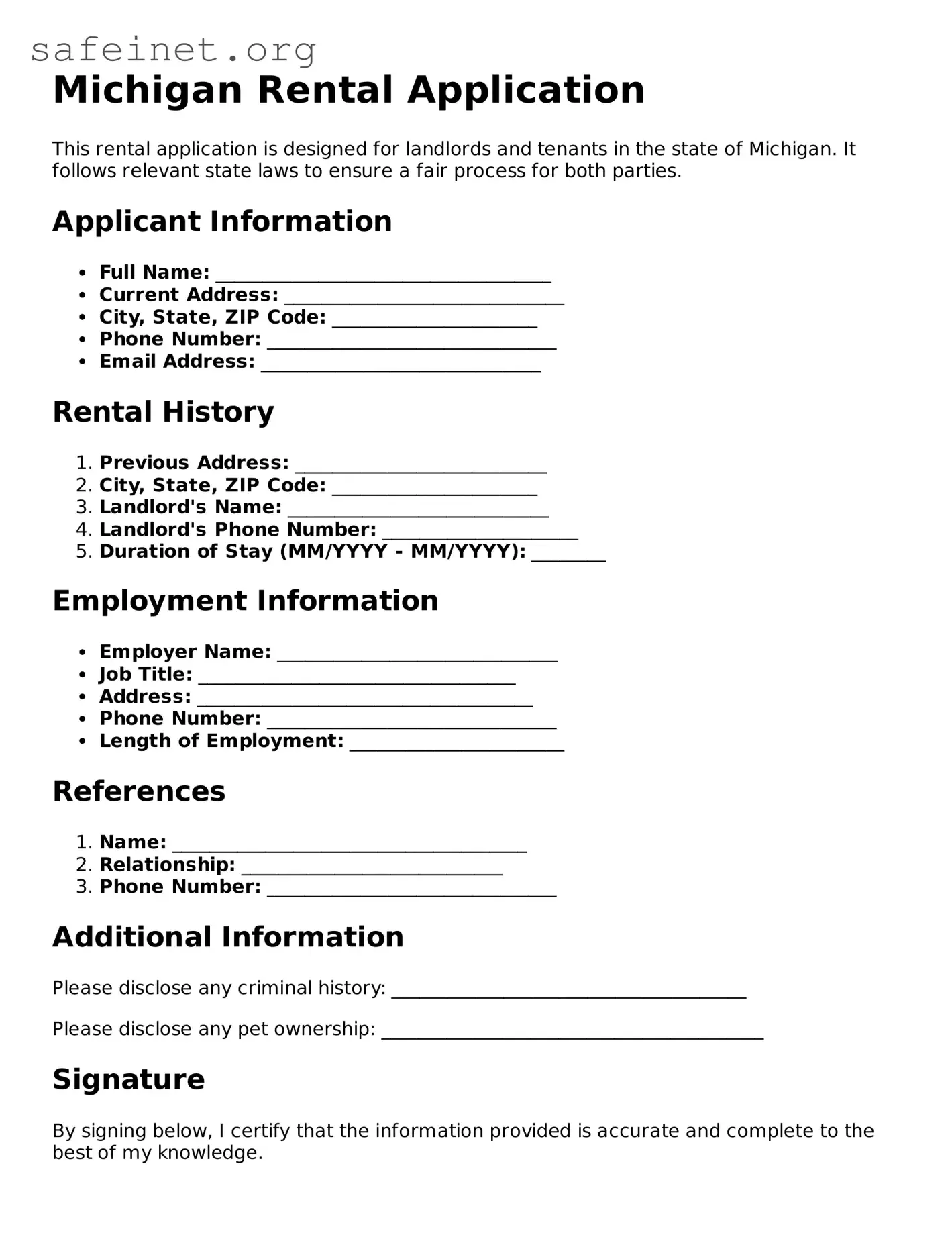What is the purpose of the Michigan Rental Application form?
The Michigan Rental Application form is used by landlords and property managers to gather necessary information from prospective tenants. It helps in assessing the applicant's ability to pay rent and their suitability as a tenant based on their rental history, income, and other relevant factors.
What information do I need to provide on the application?
Applicants are typically required to provide personal information, including their full name, contact information, and Social Security number. You will also need to disclose your employment details, income, rental history, and references. Some applications may request additional documentation such as pay stubs or bank statements.
Is there an application fee?
Many landlords charge an application fee to cover the cost of processing your application. This fee varies, so check with the landlord or property manager to find out the specific amount. Remember that this fee is usually non-refundable, even if your application is denied.
How long does the application process take?
The processing time can vary depending on the landlord or management company. Generally, it can take anywhere from a few days to a week. If additional information or documentation is needed, it may take longer. It’s wise to follow up if you haven’t heard back by the estimated time.
What happens after I submit my application?
Once your application is submitted, the landlord will review the information. They will likely conduct background and credit checks. If approved, you will be contacted to discuss lease terms. If denied, the landlord may provide a reason, but this is not mandatory.
Can my rental application be denied?
Yes, a rental application can be denied for various reasons, including poor credit history, insufficient income, or negative rental history. If your application is denied, you are entitled to know the reason based on the Fair Credit Reporting Act.
Do I need to provide a co-signer?
If your credit score is low or your income does not meet the landlord’s requirements, you may be asked to provide a co-signer. A co-signer is someone who agrees to take responsibility for the lease obligations if you are unable to meet them.
Can I edit my application after submission?
Once submitted, it can be difficult to edit your application. However, if you notice an error or need to update information, contact the landlord or property manager as soon as possible. They may allow you to submit a corrected application or provide the updates verbally.
